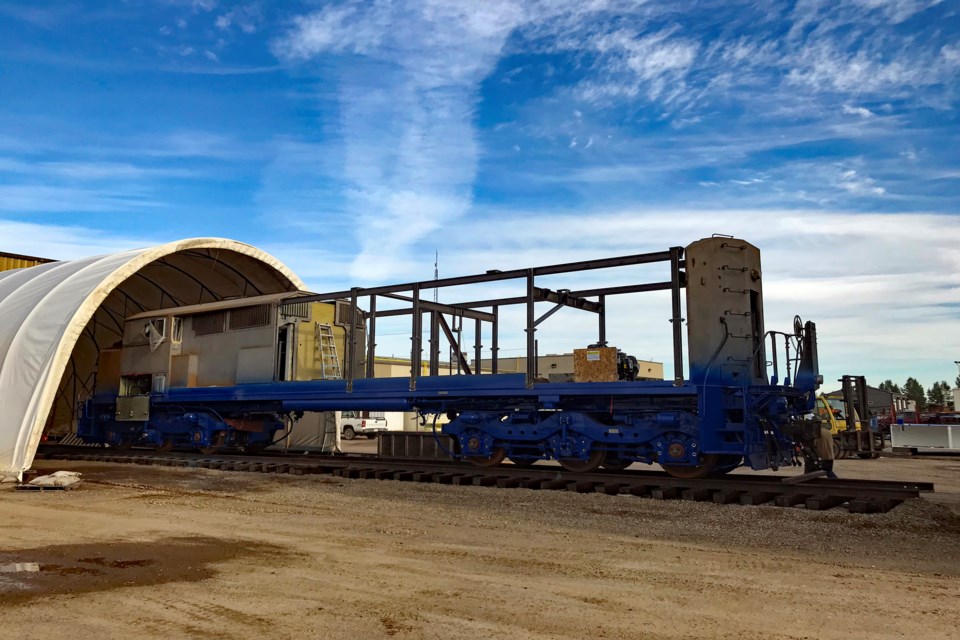INNISFAIL – Through its collaboration with Canadian Pacific, Innisfail’s Bilton Welding and Manufacturing Ltd. is on the threshold of super-powering the fortune’s of the rail industry in a way not seen since the full conversion to electric and diesel power in the late 1930s.
The two companies have been working together under Canadian Pacific’s Hydrogen Locomotive Program, which has a goal of playing a leading role in decarbonizing the freight transportation sector, to successfully convert a diesel locomotive to a hydrogen-electric drivetrain with zero carbon emissions.
Hydrogen power is rapidly grabbing increased attention as a viable alternative fuel option as there is no vehicle emissions other than water vapour. Its fuel economy is considered equivalent to about twice that of gasoline vehicles.
Initial processes for the CP/Bilton project began almost three years ago at Bilton’s manufacturing facilities in Innisfail.
“It started with meetings with CP finding someone that would work with them on this project. CP has worked with us constantly throughout that period,” said Robert Bilton, the president and chief executive officer of Bilton, told the Albertan.
“We're weekly in meetings with their engineers, their design people, and they're working with our engineers and our design people,” he said. “This is an engine with a diesel motor in it. We want to convert it. What do we have to do?
“We just started working through one issue after another one and we're now just starting on the third engine,” added Bilton. “We're streamlining processes and making improvements based on the data that's been found by reading the early models.”
Bilton said it took about a year and a half to get the first new hydrogen-powered engine completed. This was due to the COVID-19 pandemic and troublesome supply chain issues.
“Our intention is to get this down to a process where we can do 10 a year, and then 50 a year, and then continue to develop that process,” said Bilton. “In North America there's literally tens of thousands of engines that are now running on diesel. So there's a huge number of engines, that if this becomes a practical cost-effective solution, could be converted.”
And if the call came that mass production of the new hydrogen-powered engines was viable and necessary, Bilton said he would be elated, not only for his company but for Innisfail.
“That would be the greatest dream for both myself and my company, and I think the community,” said Bilton, who expressed gratitude to the Town of Innisfail for its support of the project, which included the approval of a rail spur into his company’s southwest Innisfail plant.
“It would bring a great amount of work to Innisfail but also good work for talented skilled people.”



